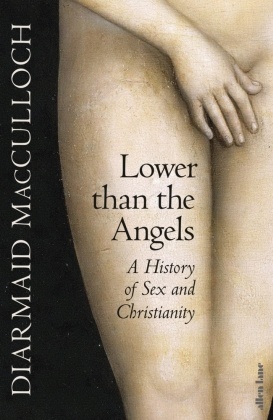Lower than the Angels - A History of Sex and Christianity
| Verlag | Penguin Books UK |
| Auflage | 2024 |
| Seiten | 688 |
| Format | 16,1 x 24,2 x 4,3 cm |
| Gewicht | 1192 g |
| Artikeltyp | Englisches Buch |
| EAN | 9780241400937 |
| Bestell-Nr | 24140093EA |
The Bible observes that God made humanity 'for a while a little lower than the angels'. If humans are that close to angels, does the difference lie in human sexuality and what we do with it? Much of the political contention and division in societies across the world centres on sexual topics, and one-third of the global population is Christian in background or outlook. In a single lifetime, Christianity or historically Christian societies have witnessed one of the most extraordinary about-turns in attitudes to sex and gender in human history. There have followed revolutions in the place of women in society, a new place for same-sex love amid the spectrum of human emotions and a public exploration of gender and trans identity. For many the new situation has brought exciting liberation - for others, fury and fear.
This book seeks to calm fears and encourage understanding through telling a 3000-year-long tale of Christians encountering sex, gender and the family, with noise s off from their sacred texts. The message of Lower than the Angels is simple, necessary and timely: to pay attention to the sheer glorious complexity and contradictions in the history of Christianity. The reader can decide from the story told here whether there is a single Christian theology of sex, or many contending voices in a symphony that is not at all complete. Oxford's Emeritus Professor of the History of the Church introduces an epic of ordinary and extraordinary Christians trying to make sense of themselves and of humanity's deepest desires, fears and hopes.
Rezension:
Magisterial ... In Lower than the Angels, Diarmaid MacCulloch offers a history of sex and Christianity that is both confronting and reassuring in its detail and complexity, taking biblical scholarship and theological development seriously at the same time as insisting on the historian's independence. A thrilling read. Lucy Winkett Financial Times

